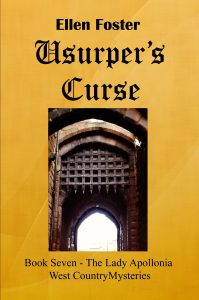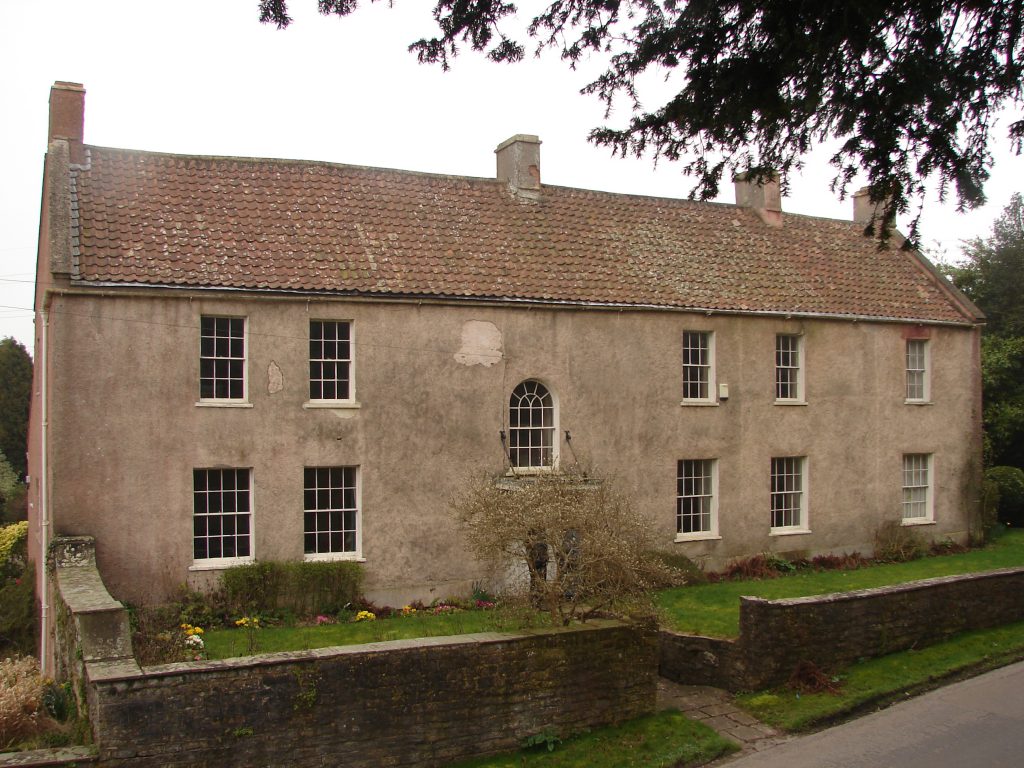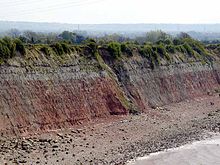 Greetings friends and my special thanks for joining us as we continue examining topics which arise in Usurper’s Curse, the seventh book in my Lady Apollonia West Country Mysteries Series. In this monthly posting, I am writing of several medieval curiosities that play a role in Usurper’s Curse.
Greetings friends and my special thanks for joining us as we continue examining topics which arise in Usurper’s Curse, the seventh book in my Lady Apollonia West Country Mysteries Series. In this monthly posting, I am writing of several medieval curiosities that play a role in Usurper’s Curse.
The first of these occurs in chapters 8 and 9 when a newborn baby is found on the doorstep of Lady Apollonia’s manor in Aust. (A picture of the building in Aust which inspired my vision of the manor is shown below.) The curiosity was not the abandoning of a foundling. Such things have happened throughout human history. This baby was abandoned in a basket along with a small pouch of salt.
Nan gives the following explanation to Lady Apollonia in Usurper’s Curse: “If I am remembering correctly,” she tells the Lady, “this is part of a ritual that says that whoever abandoned the infant with a gift of salt to you wishes that the child should be cared for and baptized. As you know, for many poor people, salt is very expensive.” I leave it to you to read that section of Usurper’s Curse to see what happens to this abandoned child.
The next curiosity occurs in Chapters 9 and 10. It is a problem that confronts Lady Apollonia’s brother, Ferdinand, the Earl of Marshfield, in a spring-fed pond behind his manor in Marshfield. The pond has turned blood-red, leading local people to say this is because of Ferdinand’s support of King Henry IV, a usurper with blood on his hands. I was inspired to include this curious incident in my novel by something that occurred in medieval times in Finchampstead in Berkshire. Again, I leave it to you to read the relevant chapters in Usurper’s Curse to learn more about the Blood-Red Spring in my story.
The final curiosity is something more familiar to modern readers than to medieval peasants, namely an eclipse of the sun. Introducing this idea allowed the return of a character, Cunomorus Amairogen, an Irish Druid who had appeared in my fifth novel, Joseph of Arimathea’s Treasure. The ancient Celts were keenly interested in the equinoxes and solstices of the sun and had a particular interest in the eclipses of the moon.
As a Druid, Cunomorus was a member of the religious order of the Celts. This order consisted of the intellectual elites and served all tribes in Celtic society. Although the Romans made efforts to wipe out the Druids in Britain, they survived much longer in Ireland. The Druids would have been the surviving Celts with the most interest in and knowledge of the sun and moon.
Since many medieval Englishmen would not have understood much of eclipses and would have been very superstitious about anything affecting the brightness of the sun, I decided to bring Cunomorus into my story to observe the solar eclipse from the Aust Cliff, shown in the picture below.
This is not an unreasonable event to have included in my story because there had been an eclipse in the early 15th century that was observed as a total eclipse in northwestern France, just across the English Channel from southwestern England.

